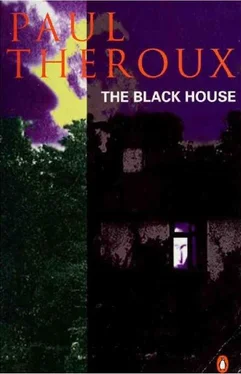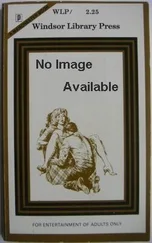Paul Theroux - The Black House
Здесь есть возможность читать онлайн «Paul Theroux - The Black House» весь текст электронной книги совершенно бесплатно (целиком полную версию без сокращений). В некоторых случаях можно слушать аудио, скачать через торрент в формате fb2 и присутствует краткое содержание. Год выпуска: 1996, Издательство: Penguin Books, Жанр: Современная проза, на английском языке. Описание произведения, (предисловие) а так же отзывы посетителей доступны на портале библиотеки ЛибКат.
- Название:The Black House
- Автор:
- Издательство:Penguin Books
- Жанр:
- Год:1996
- ISBN:нет данных
- Рейтинг книги:4 / 5. Голосов: 1
-
Избранное:Добавить в избранное
- Отзывы:
-
Ваша оценка:
- 80
- 1
- 2
- 3
- 4
- 5
The Black House: краткое содержание, описание и аннотация
Предлагаем к чтению аннотацию, описание, краткое содержание или предисловие (зависит от того, что написал сам автор книги «The Black House»). Если вы не нашли необходимую информацию о книге — напишите в комментариях, мы постараемся отыскать её.
The Black House — читать онлайн бесплатно полную книгу (весь текст) целиком
Ниже представлен текст книги, разбитый по страницам. Система сохранения места последней прочитанной страницы, позволяет с удобством читать онлайн бесплатно книгу «The Black House», без необходимости каждый раз заново искать на чём Вы остановились. Поставьте закладку, и сможете в любой момент перейти на страницу, на которой закончили чтение.
Интервал:
Закладка:
“Do you ever see him?”
“Jack? Not really. The last I heard he was applying to London Transport. Imagine Jack driving a bus!”
“He can do better than that, surely,’.’ said Munday, though he saw Jack clearly in the badge and uniform of a bus driver.
“A foreman on a tea estate? There’s nothing for him here. He’ll be bloody lucky to have a job at all.”
“Emma’s seeing Margaret this afternoon.”
“Margaret! Wasn’t she a dragon? Always reminded me of that film actress whose name I can never think of when I want to. I remember the night she came after Jack. We were drinking late at the hotel—Jack had his African popsie. ‘Excuse me/ I says and Margaret tore a strip off them both, told Jack she never wanted to see him again. I could hear her all the way out to the garden, swearing like a navvy. I’ll never forget that.”
“We were at the camp then.”
“You missed all the fireworks,” said Alec.
“Not exactly. Emma saw Margaret at Allibhai’s that Saturday and got a blow by blow description.”
“He got the boot, too, Allibhai. I expect I’ll be seeing him in Southall one of these days.”
“Do you live out that way?”
“Bleeding Ealing—not far off. I hate the place. Ever been there? It’s a five-bob ride on the Underground, ancl I’m paying the earth for a one-room flat —that’s what they call a bedsitter these days. Australians upstairs, always stamping on the floor, South Africans, you name it. Beside me there’s a family of Maltese—kids all over the place, God only knows where they sleep. It’s a right madhouse, toilets flushing, water running, radios playing. African bloke lives somewhere in the building. One day I saw him in the hall and says, ‘Kitu gani?’ ‘I am an engineering student,’ he says and gets all shirty with me. Filthy? You have no idea. Leaves turds the size of conger eels in the pan for the next person to admire. The pubs are a disgrace, all noise and music, television sets, and these horrible little chaps in old clothes with sequins pasted to their faces—queers, I fancy. Look at that bloke there.”
Alec, breathless from his tirade, nodded at a tall young man in a black cape who was standing at the bar with his back to them. He held a glass of red wine in one and and in the other a chain leash. A wolfhound with damp hair squatted panting beside him, its long tongue drooping and quivering.
“Ever see anything like it?” said Alec.
A woman entered the bar, striding past Munday and Alec. She wore a bowler hat tipped back on her head, a fox-fur coat, a shirt and tie, striped trousers and black patent leather shoes; a young man, shorter than she, with long hair and a pale face and faded velvet jacket, held her hand. The woman ordered a whisky for herself, a beer for her companion. She talked loudly to the barman while her companion smoked.
“They’re all on drugs,” said Alec. “It’s incredible how this country’s gone downhill. Saw a couple of queers the other day having it off in Walpole Park. And the prices! I pay ten quid a week for a room barely big enough to swing a cat in.”
“We’re not paying a lot,” said Munday, “but we’re finding the country a bit of a strain. The cold toilet in the rented house. It gets so dark. And those country roads. It’s all retired people.”
“I keep thinking,” said Alec, “there should be a pub somewhere in London where blokes like us from the bundu could go and talk over old times. Sort of club.”
“Malcolm used to drink at The York Minster.”
“Poor Malcolm. They say he looked awful toward the end. Where was that? Nairobi?”
“Mombasa.”
“No, I’m sure it was Nairobbery.” Alec smiled grimly. “I’d even settle for that.”
Munday was jostled by a man with a briefcase. He said, “It’s filling up.”
“Packed. Where do they all come from?” Alec clamped his lips together. “If this was the hotel they’d all know me, everyone of them. Hi Alec.”
“Have you thought of moving out of London? Maybe into the country?”
“I would, but”—Alec leered—-“There’s no nyama there.” It was a settler euphemism, the Swahili word for meat, and he made it sound vicious.
“Is there any here?”
“Animals,” said Alec. “Read the cards at the news agents! Notting Hill Gate’s a good place for them.
‘Dancing Lessons,' ‘French Lessons,’ ‘Games Mistress,’ and whatnot. Some are quite young, just getting started. I usually ring up ‘Dusky Islander Seeks Unusual Position’—I always liked the black ones. They’re not a patch on those Toro girls but at my age you can’t be choosy. I’m past it—I admit it—but they don’t mind.” Alec sipped his beer and said, “We didn’t know when we were well off. But it’s too late for that now. It’s all finished. We’re stuck here. I suppose we should make the best of it."
Munday objected but said nothing. Alec, fifteen years his senior and with little education, was including him in his declaration of futility. He said, “I’ve been thinking of perhaps going back.”
Alec said, “They’ll kill you.”
“I doubt it.”
“Why don’t you then?”
“My heart,” said Munday.
“What a shame.” Alec sounded as if he meant it. “Money’s a problem, too,” said Munday. “I can’t get another research grant unless I finish this book.” Alec smiled. “You’re a liar,” he said. “Emma’s got pots of money. We all knew that.”
Munday stared at him, but his stare turned sheepish. He said, “And I hated being a white man.”
“I thought you rather fancied it.”
“That’s what I mean,” said Munday.
“I never thought much about it myself.”
“Maybe that’s why you lasted so long.”
“Twenty-three years,” said Alec, and gulped the last of his beer.
Munday bought the next round of drinks, and when he returned with them Alec was singing softly,
“Mary had a little lamb,
It was mzuri sana;
It put its nose up Mary’s clothes Until she said, ‘Havana' ”
“Reminiscing again?” said Munday.
“Remember that little road to Bundibugyo, over
the mountains? And the pygmies—what a nuisance they were, little buggers.”
“In the Ituri Forest.”
“The rain-forest! It was so dark there. The ferns were four feet high. We used to park there, Jack and I, and wait for the tea lorries from the Congo. It was easier for them to sell it on the black market than bring it by road to Leopoldville. They were a rum lot, those Congolese lorry drivers—spoke French worse than me. And that’s saying something.”
“I didn’t realize you were involved in smuggling,” said Munday, and he saw Alec brighten and purse his lips with pride.
“I kept quiet about it there—highly illegal, you know,” said Alec. He winked. “I’m a smuggler from way back. Where’d you think I got all those crates of Primus Beer? That was a good beer. Not like this stuff—tastes like soap to me.”
Alec told a smuggling story: a late night on the Congo border—a poker game in a candle-lit hut in the forest—the drivers showing up drunk with the tea chests and arguing about the price—Alec choosing the biggest African and knocking him to the floor— not a peep from the others—tossing them out “bodily” —and Munday was taken back to the lounge of the Mountains of the Moon Hotel; he was listening to Alec, who would soon start arguing endlessly about the merits of the “head shot” over the “heart shot/’ He was forgetting the Bwamba village, as far from him then as Four Ashes was now, and cheered by the old man’s company and the long whine of the locusts. But he was not so absorbed in the story that he failed to see that what had brought him to London was what had made him look up Alec at the hotel on a Saturday; he saw his motive. The woman in the church hall had asked him how he stood it: he had not mentioned those weekends. He listened to Alec without enthusiasm and saw himself as a small anxious man, and Alec rather foolish, supporting each other. He was depressed—that woman’s word— for so much had changed, traveling to London would be an inconvenient and expensive habit, and really Four Ashes was farther from any relief than that little village beyond the mountains.
Читать дальшеИнтервал:
Закладка:
Похожие книги на «The Black House»
Представляем Вашему вниманию похожие книги на «The Black House» списком для выбора. Мы отобрали схожую по названию и смыслу литературу в надежде предоставить читателям больше вариантов отыскать новые, интересные, ещё непрочитанные произведения.
Обсуждение, отзывы о книге «The Black House» и просто собственные мнения читателей. Оставьте ваши комментарии, напишите, что Вы думаете о произведении, его смысле или главных героях. Укажите что конкретно понравилось, а что нет, и почему Вы так считаете.












